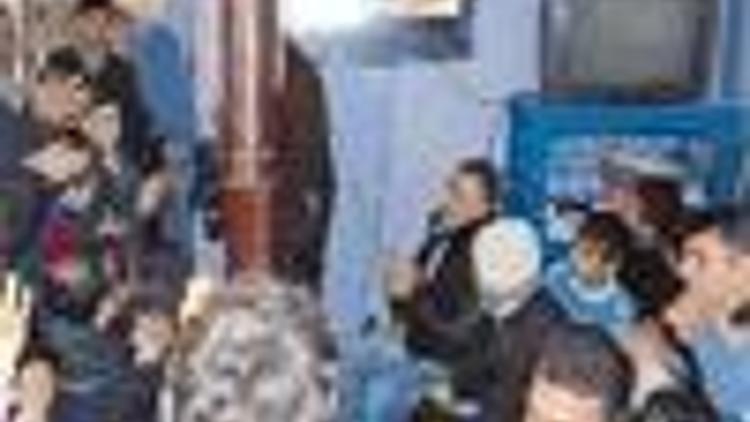Kurdish TV opens but picture still fuzzy
Güncelleme Tarihi:

ANKARA - As Turkey’s first full-time Kurdish TV Channel, TRT-6, is about to be launched, bans remain on the use of letters in the Kurdish alphabet such as w, q, and x, which are absent in the Turkish language.
The head of the Kurdish Writers’ Association, İrfan Babaoğlu, dismissed the channel initiative as tragicomic and said the dilemma Turkey faces now is the use of the Kurdish language, speaking to the Hürriyet Daily News & Economic Review yesterday.
"People cannot name their children, streets, or parks in Kurdish. Just today (Sunday) in Diyarbakır, 12 parks were opened; all their original names were in Kurdish. They were then given to the municipality and the names were changed by the district governor," Babaoğlu said. "Most of them did not even have w, q, or x in the name. I do not believe the new channel is an improvement."
The political parties law still restricts the use of these letters in election campaigns, although TRT-6's test runs have made use of them. Democratic Society Party, or DTP, deputy Akın Birdal said the discrepancy was a dilemma for the Turkish state, but was optimistic about the future. "I do not doubt that more steps will be taken. This is a development in itself, but the content of the channel must be shaped in consultation with Kurds and local people," Birdal said, adding that the channel’s affect would be naught if it was used for propaganda purposes. "The Justice and Development Party (AKP) must not use the channel for leverage in the local elections."
Şanar Yurdatapan, a composer and a human rights activist who has received a Human Rights Watch award, also acknowledged the improvement, but lamented its tortoise pace. "The question of language was solved back in the Lausanne Treaty," he said and cited Article 39 of Turkey’s founding treaty signed in 1923. "Every Turkish citizen has the right to use the language he wants in any open meetings or publications. But there are laws like the letters code that run counter to this article," Yurdatapan said.
"It is tragicomic really, it humiliates Turkey," said human rights attorney Yusuf Alataş, speaking to the Daily News. "People in Turkey should not have to deal with these petty events, letters and bans," he said.
Improvements still at glacial pace
Diyarbakır’s Sur district mayor, Abdullah Demirtaş, was deprived of his post by a decision from the Council of State after he attempted to give municipality services in Kurdish, Armenian and Assyrian last year.
Yurdatapan was pessimistic about the content of the TV channel. "My guess is that like every business carried out by the state, the aim will be to act as if something has been done, instead of really accomplishing anything. I believe we will only see state rhetoric, this time in Kurdish," he said.
The utility of starting the channel in the Kurdish language is lower than it could have been if it had started decades ago because anyone who has a satellite dish can access channels in any language.
The head of Turkey Human Right’s Association, or İHV, Yavuz Önen said a state-run channel in Kurdish was not the cure for problems. "After a while, it may not be watched. I believe the state does not intend to provide a basis for its people develop their own languages, but it has political motivations," he said. TRT’s channel will have to compete with other Kurdish channels for an audience, he said.
"Local authorities must be allowed to deliver services in other languages. The state allows Kurdish TV on the one hand, but opens investigations against mayors who send Bayram greeting cards in Kurdish," Önen said.
The change will not come easily, especially as it is dependent on a bureaucracy that resists improvement on some issues it considers sensitive. "There is a considerable amount of resistance in some state cadres, which insist on sticking with old practices," Alataş said. "We have heard similar criticisms, but this became a stage that led us here. Nevertheless, we have to support the new channel," Önen said.
Parliament Speaker Köksal Toptan requested minute keepers of Parliament to refer to the Kurdish not as "an unknown language" that has been the practice since 1991, but as "a non-Turkish language."

